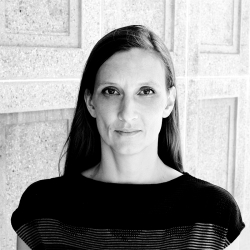How did fiction and speculation turn into productive modes?
Atelier de recherche
How did fiction and speculation turn into productive modes?
Historically, conceptions of realism were a function of the differential relation between the factual and the fictional. Traditionally understood as an “antithesis to the real”, procedures of fictionalization can also be seen as productive processes of reciprocal translations between existing social realities and alternative worlds. From this point of view, fiction destabilizes positivist notions of the factual but also of making intelligible the essential contingency of the real. Especially in the context of recent discussions of realist practices, fiction has served as a critical counterpoint to documentary truth claims. Rather than understanding fiction as documentary’s “other” on the level of aesthetic categories, we consider it a productive mode of social reality. Fiction is no longer a domain of art. On the contrary, art seems to be embedded in fictitious social and temporal forms: the real abstractions of the finance markets, which operate with future speculations and fictitious expectations, or the temporal and spatial fictions of a disjunctive co-presence in a globalized world. We ask, what consequences do these new understandings of the fictional have for our established concepts of realism or of a “critical irrealism”?
Workshop conceived by Julia Gelshorn (University of Fribourg, guest researcher at DFK Paris), Wolfgang Brückle (HSLU Luzern), and the team of the research project FNS “Real Abstractions : Reconsidering Realism’s Role for the Present“ (Tobias Ertl, Irène Unholz, Salvatore Vitale).
Thuesday, 26 November 2024, 16:00–18:00 (open to everyone)
- Screening of the film “I Am a Human” (2023) and of the current film project “Death by GPS”, written and directed by Salvatore Vitale
Introduction: Salvatore Vitale
Respondent: Mark Durden (University of South Wales) - Discussion
Wednesday, 27 November 2024, 9:30–13:00 (internal event without external audience)
- Workshop with Elena Esposito (University of Bielefeld)





